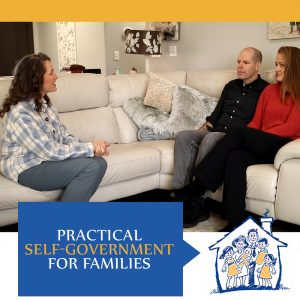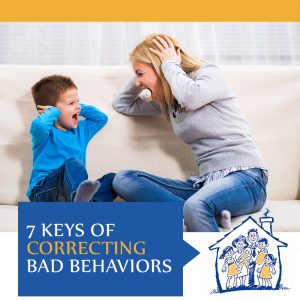Effective use of consequences
"On your CDs you mention coming up with three predetermined consequences–a minor consequence, a major consequence, and a big whammy, but throughout the presentations it sounded like you gave examples of more than three consequences (1-extra chore, 2-loss of snack privileges, 3-24 hours of working/no privileges, 4-SODAS, 5-major maintenance). I was a little confused since all the consequences you mentioned sounded like they were ones you had predetermined (not just ones that you'd agreed on in a family meeting to deal with other issues). Do you have more than three predetermined consequences? Are the consequences different during the rule of three than during regular interactions?
You also mentioned that there's a difference between natural and synthetic consequences, and it's better to use natural consequences–does that mean you don't use your predetermined consequence if you can see a good natural consequence, or do you stick with the predetermined consequence unless you have a family meeting and come up with a more natural consequence?"
I have 5 or 6 consequences that I offer up as examples. We have used all of them at different times in the past. We have found that as the children grow and change, we sometimes feel a need to change the consequences that we use in our rule of three. There have been definate times when loss of snack has been much more motivating than earning a major maintenance.
For getting started I always suggest 3-4 so that people don't get overwhelmed or feel that they need to change things all the time. Change might happen with consequences, but it should happen naturally. Right now our consequences are as follows. Minor offense = extra chore. Major offense (hitting or being destructive etc.) =loss of snack privilege. Rule of three consequences = 1st, loss of snack privilege. 2nd, Major maintenance. 3rd, loss of privileges for 24 hours. As you can see, the consequences are structured differently for the rule of three. You could incorporate chore into rule of three too if you wanted to. See what feels best for your family.
Synthetic vs. Natural consequences. Using natural consequences is ideal, but not always effective at first. The idea it to start out using synthetic consequences which you can use quickly and consistently to teach cause and effect. While using the synthetic consequences, try to incorporate natural consequences too. (If they broke something, they have to pay for it etc.) It is important to learn that consequences will always be there even if you don't live with mom and dad anymore.
When my youth get to a certain age and understanding of cause and effect, then we transition to using mostly natural consequences and only occasional synthetic consequences.
So, if you feel you should use the natural consequence, do it, but also use your pre-determined synthetic consequences; especially at the beginning. To come up with natural consequences with the youth, I usually have a counseling session. Usually synthetic consequences are decided upon in the meetings, because natural consequences don't really change. One great consequence which we decided upon in a family meeting, was 30 minutes of work time for any dishonest behavior, even doing a chore in a lazy way.






